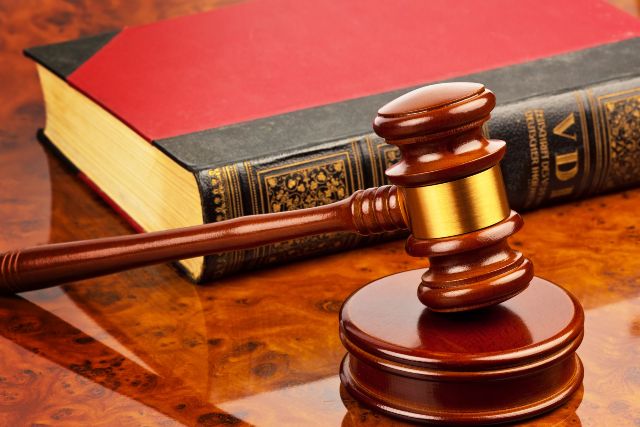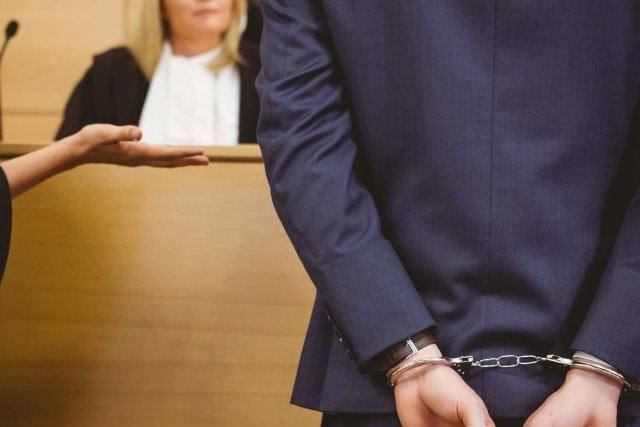Navigating Assault Charges in Manhattan
Being charged with assault in New York is a serious matter. Seemingly minor allegations can leave a permanent mark on your criminal record, disrupt your career, and derail your future. Whether the accusation stems from a bar fight, a domestic dispute, or an alleged altercation in public, facing assault charges can trigger irreversible consequences under New York’s complex Penal Law Article 120. Fortunately, you don’t have to face it alone. With the right Manhattan assault attorney on your side, you can build a strong defense and take steps to protect your freedom and reputation.
This guide is designed to walk you through what assault charges mean in New York, the legal process, potential penalties, and how a New York assault lawyer can help you secure the best possible outcome.
What is Assault Under New York Law?
Under New York Penal Law, “assault” refers to intentionally or recklessly causing physical injury to another person. In practice, this could mean anything from a single punch that causes a bruise to a violent attack involving a weapon. New York recognizes several types of assault, each classified by the severity of the injury, the presence of weapons, and other aggravating factors. “Physical injury” refers to impairment or substantial pain. Even injuries that seem minor, such as bruises or redness, can meet this standard if they result in substantial pain.
There are three primary degrees of assault:
Assault in the Third Degree (PL § 120.00)
This is the least serious form and is charged as a Class A misdemeanor. It involves:
● Intentionally causing physical injury to another person
● Recklessly causing physical injury
● Criminal negligence with a deadly weapon
Penalties:
● Up to one year in jail
● Probation for up to three years
● Fines, counseling, or community service
Despite being a misdemeanor, a conviction can have long-lasting consequences. An experienced Manhattan assault lawyer can fight to reduce these penalties or dismiss the charges altogether.
Assault in the Second Degree (PL § 120.05)
This Class D felony is more serious and typically involves:
● Intent to cause “serious physical injury”
● Use of a deadly weapon or dangerous instrument
● Assaulting protected individuals (e.g., police, EMTs, MTA workers) while they’re performing official duties
● Injuring someone younger than 11 or older than 65 under specific circumstances
Penalties:
● 2 to 7 years in state prison (even for first-time offenders)
● Fines, restitution, and mandatory orders of protection
Second-degree assault is considered a violent felony, which can complicate plea negotiations and sentencing. A New York assault attorney with courtroom experience is critical in navigating these charges.
Assault in the First Degree (PL § 120.10)
The most serious assault charge in New York, this Class B felony involves:
● Intentionally causing serious physical injury using a deadly weapon
● Acts showing “depraved indifference to human life”
● Assaults occurring during the commission of another felony
● Permanent disfigurement or loss of bodily function
Penalties:
● 5 to 25 years in prison
● No possibility of probation for first-time offenders
● Court-mandated restitution and long-term court supervision
If you’re charged with first-degree assault, it is vital to act fast and retain a skilled criminal defense attorney in Manhattan.
How Does Intent Affect Assault Charges?
Intent is a key element in nearly every assault case. New York law differentiates between:
● Intentional conduct: Purposefully causing harm
● Reckless behavior: Disregarding a known risk
● Criminal negligence: Failing to perceive a risk when a reasonable person would
The more deliberate the act, the more severe the charge. For example, pushing someone out of anger may be charged as third-degree assault, but if you used a weapon, it could quickly escalate to second- or first-degree charges.
An experienced New York assault lawyer can investigate the facts to challenge the prosecution’s narrative of intent, potentially reducing your charges or getting them dismissed.
Collateral Consequences of an Assault Conviction
A criminal conviction doesn’t just end with a jail sentence or fine. It can follow you for years in subtle but damaging ways:
Employment Impact
● Employers often reject applicants with violent criminal records
● Jobs requiring background checks (government, healthcare, education) may be off-limits
Education and Licensing
● Colleges and universities may deny admission
● Licensing boards for law, nursing, or financial services may disqualify applicants
Immigration Consequences
● Assault convictions may lead to deportation or inadmissibility
● Even lawful permanent residents can face removal proceedings
These long-term effects can be just as damaging as a jail sentence. A skilled Manhattan assault attorney understands how to structure a defense that considers not just the trial, but your life afterward.
Critical Factors Amplifying Charges
Weapon Use:
● Deadly weapons: Guns, knives, brass knuckles.
● Dangerous instruments: Any object used to inflict harm (e.g., brick, vehicle, hot liquid).
● Even accidental weapon use elevates misdemeanors to felonies.
Victim Status:
● Enhanced penalties for assaults against:
o Law enforcement (PL § 120.05(3))
o Children <7 (PL § 120.05(9))
o Transit/healthcare workers (PL § 120.05(11))
Intent vs. Recklessness:
● Intentional acts: Higher charges (e.g., punching to injure).
● Reckless behavior: Reduced culpability (e.g., shove during argument).
The Legal Process: Step-by-Step
Arrest & Desk Appearance Ticket (DAT):
● Police may issue a DAT for misdemeanors, requiring court appearance within 30 days.
● Never speak to officers without your attorney. Statements are evidence.
Arraignment:
● Judge sets bail (up to $50,000 for felonies) and issues temporary orders of protection.
● Critical: Violating these orders leads to new felony contempt charges (PL § 215.51).
Evidence Discovery:
● Prosecutors provide:
o Bodycam footage
o 911 recordings
o Medical records
o Victim/witness statements
● Your Manhattan assault attorney files motions to:
o Suppress illegal evidence (e.g., coerced confessions).
o Dismiss charges for lack of corroboration.
Plea Negotiations:
● Almost all NYC assault cases resolve through plea deals.
● Prosecutors may offer reductions to:
o Harassment (violation, no jail)
o Disorderly conduct (sealed record)
o Adjournment in Contemplation of Dismissal (ACD)
● Warning: Accepting deals without counsel risks major consequences.
Trial:
● Burden of proof: “Beyond reasonable doubt.”
● Key defenses:
o Self-defense (PL § 35.15): Prove imminent threat + proportional response.
o False allegations: Expose motives (e.g., custody battles, revenge).
o Alibi evidence: Phone/GPS records, witness testimony.
o Medical contradictions: Challenge “serious injury” claims.
Sentencing:
● Misdemeanors: 1-year jail max, anger management programs.
● Felonies: State prison, 5–25 years.
● Aggravating factors: Prior convictions, hate crime enhancements (PL § 485.05).
Orders of Protection and Assault Charges
In most assault cases, especially those involving domestic violence, judges will issue an Order of Protection, barring you from contacting the alleged victim.
Depending on the outcome of the case, these orders can remain in effect for:
● 6 months (for ACDs)
● 2 years (for violations like harassment)
● 5 years (for assault convictions)
Violating an Order of Protection can result in additional criminal charges. If you’ve received one, speak with a criminal defense attorney immediately to avoid unintentionally breaking the law.
How a Manhattan Assault Attorney Can Help
When facing assault charges in New York, hiring the right legal counsel can be the difference between freedom and a felony conviction. A strong Manhattan assault attorney will:
● Evaluate the Prosecution’s Case: Analyzing police reports, witness statements, and medical records
● Explore All Legal Defenses: Including self-defense, lack of intent, or mistaken identity
● Challenge the Severity of the Charges: Arguing the injury was not “serious” or disputing weapon use
● Negotiate Favorable Outcomes: From dismissals to plea deals that avoid jail time
● Advocate for You in Court: From arraignment to trial, ensuring your rights are protected at every step
Don’t gamble with your future. The earlier you involve a New York assault lawyer, the more options you’ll have.
Potential Legal Defenses Against Assault Charges
Lack of Intent: You may have acted impulsively or accidentally, without any intent to harm. If your actions weren’t deliberate, your charges could be reduced or dismissed.
● Self-Defense: If you were defending yourself or someone else from harm, your actions might be legally justified.
● Defense of Property: New York allows limited use of force to protect property, though the response must be proportionate.
● Mistaken Identity: If there’s uncertainty about who committed the assault, your attorney can argue mistaken identity, especially if you have an alibi.
● Inadequate Injury: The prosecution must prove the injury qualifies as “physical” or “serious” under New York law. If the victim’s injury is too minor, the case may not meet the standard.
Each defense must be tailored to your unique case. That’s why it’s vital to work closely with a Manhattan assault lawyer who understands the nuances of New York’s Penal Code.
Assault Charges and Hate Crime Enhancements
Assault can be charged as a hate crime if the act was motivated by the victim’s:
● Race or ethnicity
● Religion
● Gender or sexual orientation
● Disability
● Age or other protected characteristic
Hate crime charges can elevate a misdemeanor to a felony, or a felony to an even higher penalty tier, adding years of potential prison time.
If you’re accused of a hate crime, you must contact a Manhattan assault attorney immediately. These cases are politically charged and vigorously prosecuted.
Commonly Charged Related Offenses
In addition to assault, prosecutors may charge you with:
● Menacing (placing someone in fear of injury)
● Harassment (annoying or alarming contact)
● Disorderly conduct
● Criminal possession of a weapon
● Aggravated harassment (if threats are made electronically or in writing)
Each of these charges carries its own penalties, and combined charges can complicate your defense. You want a knowledgeable criminal defense attorney who can work to consolidate or dismiss them.
Why You Shouldn’t Delay
Being charged with assault in New York is frightening. It’s tempting to hope it’ll go away, especially if you believe the incident was a misunderstanding or you acted in self-defense.
But silence or delay is not a defense. Evidence disappears. Witnesses forget. Prosecutors prepare aggressively.
The best move you can make is to contact a seasoned Manhattan assault lawyer today. Your future may depend on it.
The Fast Law Firm, P.C.: Your Defense Starts Now
At The Fast Law Firm, P.C., we understand how devastating an assault charge can be. We’ve helped countless clients in Manhattan and throughout New York fight back against unfair allegations, secure dismissals, and reduce charges. Our team is strategic in court, compassionate with our clients, and thorough at every stage.
If you or a loved one is facing assault charges, don’t leave your future to chance. Contact us today at 212-729-9494 for a free, confidential 30-minute consultation with a Manhattan assault attorney. We’re ready to stand by your side and protect your rights.
Your defense matters. Your future matters. Contact The Fast Law Firm, P.C. now to speak with a dedicated New York assault lawyer and begin building your defense.
Common Questions About Assault in NYC
Can I Be Charged With Assault Even If There Was No Injury?
Yes. Assault charges in New York can be based on the intent to cause harm and the act itself, even if the injury is minor or non-existent. For instance, throwing a punch that misses or pushing someone who doesn’t fall can still be prosecuted under “attempted assault” laws.
Is Pushing Someone Considered Assault?
Potentially, yes. If the push causes “substantial pain” or is done recklessly or with a weapon, it could result in third-degree assault charges. Context matters, which is why having a knowledgeable New York assault lawyer is crucial.
What’s the Difference Between Assault and Menacing?
Assault requires physical injury. Menacing involves placing someone in fear of imminent physical harm, often by showing a weapon or making threats. Menacing is typically a misdemeanor but can accompany an assault charge.
Can I Claim Self-Defense?
Yes. “Justification” (New York’s legal term for self-defense) is a valid defense if:
● You were not the initial aggressor
● Your response was proportionate to the threat
● You reasonably believed force was necessary
Your Manhattan assault attorney can raise an affirmative defense in court or use it to negotiate a dismissal or reduced charge.








